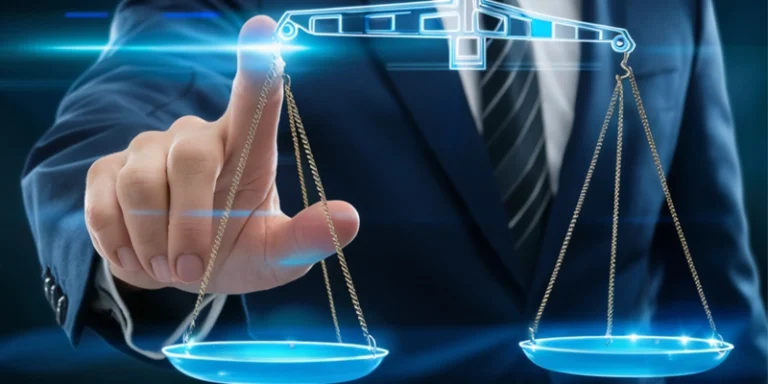The legal industry stands at a pivotal crossroads. While centuries-old traditions of jurisprudence continue to shape courtrooms and law firms worldwide, a digital revolution powered by legal AI is fundamentally transforming how legal services are delivered, accessed, and priced. This technological shift isn’t just changing the tools lawyers use—it’s reshaping the entire landscape of legal practice.
The Rise of Legal AI: Beyond Science Fiction
Legal AI has evolved far beyond the realm of science fiction to become a practical reality in law firms, corporate legal departments, and courts around the globe. Today’s artificial intelligence systems can analyze thousands of legal documents in minutes, predict case outcomes with surprising accuracy, and draft contracts with minimal human oversight.
Machine learning algorithms now power sophisticated legal research platforms that can sift through decades of case law in seconds, identifying relevant precedents that might take human researchers days to uncover. Natural language processing enables AI systems to understand complex legal language, extract key information from contracts, and even flag potential compliance issues before they become costly problems.
Document review, once the domain of armies of junior associates working through mountains of paperwork, has been revolutionized by AI systems capable of identifying privileged documents, extracting relevant facts, and categorizing information with unprecedented speed and accuracy. These systems don’t just work faster—they often work more consistently than their human counterparts, eliminating the fatigue and oversight that can plague lengthy document review projects.
Traditional Law Practice: The Human Element
Despite the remarkable capabilities of legal AI, traditional law practice retains irreplaceable strengths that technology cannot easily replicate. The practice of law fundamentally involves human judgment, empathy, and the ability to navigate complex interpersonal dynamics that remain beyond the reach of current AI systems.
Experienced attorneys bring contextual understanding to legal problems that goes far beyond pattern recognition. They can read between the lines of a client’s story, understand the emotional stakes involved in family law matters, and craft persuasive arguments that resonate with judges and juries on both logical and emotional levels.
The attorney-client relationship remains deeply personal, built on trust, confidentiality, and the lawyer’s ability to advocate zealously for their client’s interests. This human connection provides reassurance and guidance during some of life’s most challenging moments—something that no algorithm can truly replicate.
Moreover, traditional legal practice emphasizes the importance of legal ethics, professional responsibility, and the broader implications of legal decisions on society. Seasoned practitioners understand that legal work isn’t just about finding technical solutions but about ensuring justice is served and the rule of law is preserved.
The Hybrid Future: Integration Rather Than Replacement
The future of legal services likely lies not in choosing between legal AI and traditional practice, but in creating sophisticated hybrid models that leverage the strengths of both approaches. Forward-thinking law firms are already discovering that the most effective strategy involves using AI to handle routine, repetitive tasks while freeing human lawyers to focus on higher-value work requiring creativity, judgment, and interpersonal skills.
Legal AI excels at data processing, pattern recognition, and routine analysis—tasks that consume significant time in traditional practice but don’t necessarily require human insight. By automating these functions, lawyers can dedicate more time to strategic thinking, client counseling, and complex problem-solving that truly benefits from human expertise.
This integration is already visible in areas like due diligence, where AI systems can quickly identify potential issues in large datasets, allowing lawyers to focus their attention on the most critical findings. In litigation, predictive analytics help attorneys assess case strength and settlement prospects, informing strategic decisions about resource allocation and case management.
Contract automation represents another promising area where legal AI and human expertise complement each other effectively. While AI can generate standard contract provisions and flag unusual terms, experienced lawyers provide the strategic thinking needed to negotiate favorable terms and understand the broader business implications of contractual relationships.
Challenges and Opportunities Ahead
The integration of legal AI into traditional practice faces several significant challenges. Regulatory frameworks struggle to keep pace with technological innovation, creating uncertainty about liability, ethical obligations, and professional standards when AI systems are involved in legal work.
Data privacy and security concerns are paramount, particularly given the sensitive nature of legal information. Law firms must ensure that AI systems meet the highest standards for protecting client confidentiality and complying with attorney-client privilege requirements.
There’s also the challenge of algorithmic bias, where AI systems might perpetuate or amplify existing inequalities in the legal system. Ensuring that legal AI tools are fair, transparent, and accountable requires ongoing vigilance and sophisticated oversight mechanisms.
However, these challenges are accompanied by tremendous opportunities. Legal AI has the potential to democratize access to legal services by reducing costs and increasing efficiency. Automated legal document preparation could make basic legal services accessible to individuals and small businesses who previously couldn’t afford legal assistance.
For legal practitioners, AI tools can enhance job satisfaction by eliminating tedious tasks and allowing lawyers to focus on intellectually stimulating work that makes full use of their training and expertise. This could help address burnout and improve work-life balance in a profession known for its demanding schedules.
Preparing for Tomorrow’s Legal Landscape
The successful law firm of the future will likely be one that embraces legal AI while maintaining its commitment to traditional values of client service, legal ethics, and professional excellence. This requires investment in technology infrastructure, ongoing training for legal professionals, and thoughtful integration of AI tools into existing workflows.
Legal education must evolve to prepare tomorrow’s lawyers for this hybrid environment, providing training in both traditional legal skills and technological literacy. Understanding how to work effectively with AI tools will become as important as mastering legal research and writing.
The transformation of legal services through legal AI represents both a challenge and an opportunity for the profession. Those who successfully navigate this transition will likely find themselves better positioned to serve clients effectively while building more sustainable and fulfilling legal practices.

